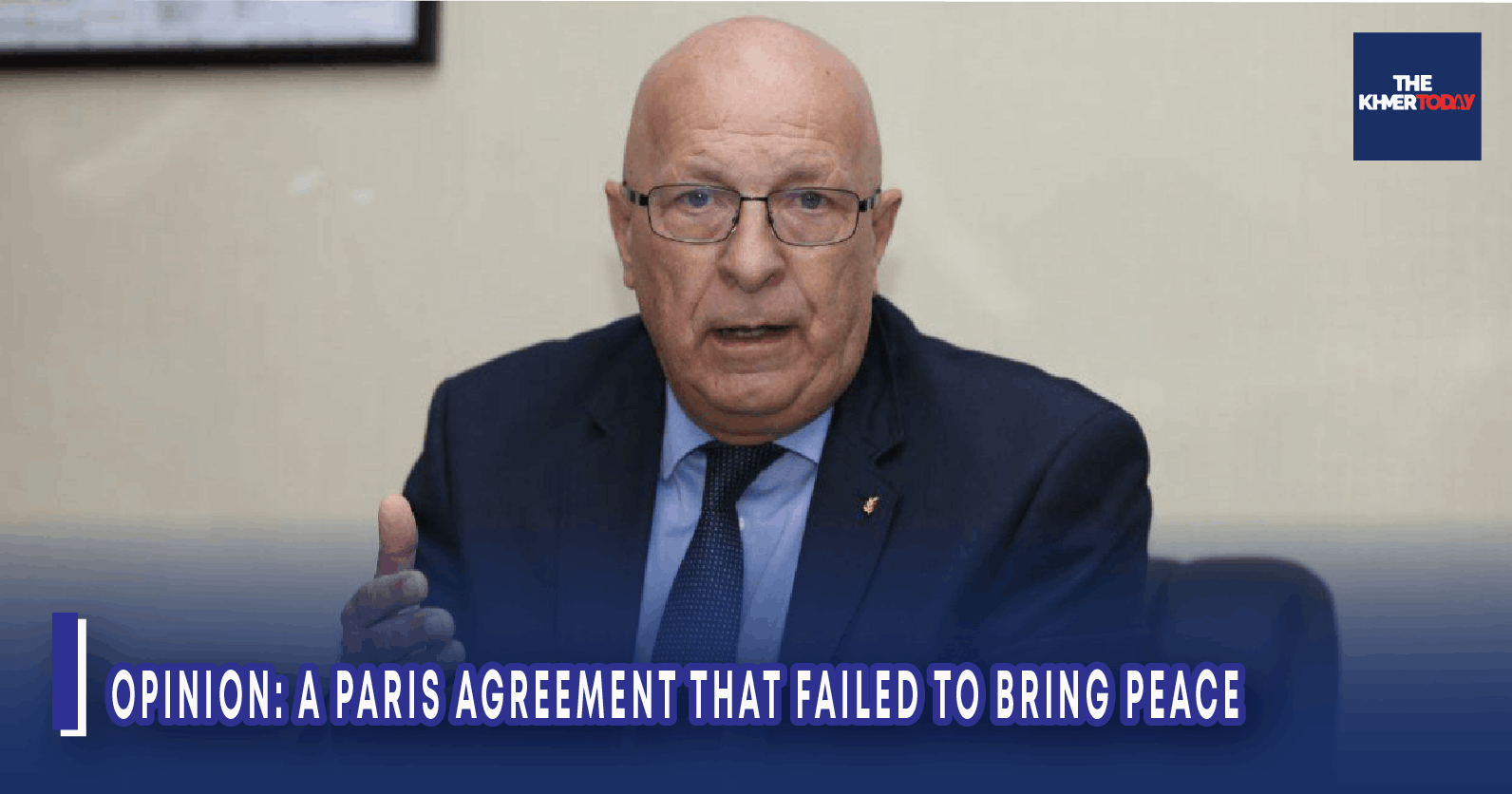OPINION: A Paris Agreement That Failed to Bring Peace

Phnom Penh, October 23, 2023 --
32 years ago, on October 23, 1991, three agreements were signed in Paris, officially called “Agreements for a comprehensive political settlement of the Cambodian conflict”. Some, who recall this event, refer to the “Paris Peace Agreement”. Others do not hesitate to assert that these agreements and the United Nations mission responsible for applying them brought peace to Cambodia.
Nothing could be further from the truth, and Cambodians know this better than anyone. Although the Paris Agreements and the United Nations mission were a major event in Cambodia's recent history, because they enabled the repatriation of 372,000 refugees, because they enabled the election of a Constituent Assembly and the establishment of a parliamentary monarchy, and because they allowed Cambodia to rejoin the international community from which it had been unjustly expelled in 1979, when the UN left in September 1994, peace did not reign in Cambodia.
Need we to remind that, at the last press conference of the UN mission, UNTAC spokesman Eric Falt was forced to admit that "on average, the Khmer Rouge blew up a bridge every day". Need we to remind that on behalf of Pol Pot's movement, his representative in Phnom Penh, Khieu Samphan, officially declared on 8 July 1992 that his faction was withdrawing from the peace process?
If we reread the Paris Agreements, we see that the provisions relating to pacification, considered to be the main objective of these agreements, occupy the most space in the texts. B. Boutros-Ghali, the UN Secretary-General, declared when, on 28 February 1992, the Agreements were ratified by the UN Security Council that "the achievement of this objective is a prerequisite for the proper implementation of the Agreement".
If we reread the many pages of Annex 2 of the Agreements devoted to the entire pacification process, we see that "a ceasefire had to be obtained, followed by the regrouping and cantonment of the military forces involved, the storage of their weapons and munitions and the demobilization of the soldiers of the four factions". None of this was achieved because Pol Pot's movement reneged on its signature, provoking a fundamental change in circumstances that called into question the commitments of the other parties.
And the UN offered the spectacle of its impotence when the cars carrying the UN Secretary-General's highest representative in Cambodia and the general commanding the 16,000 blue helmets of UNTAC's military and police component were stopped by a simple bamboo barrier guarded by a Khmer Rouge soldier wearing rubber sandals. What went down in the history of UNTAC as the "bamboo barrier incident" illustrated the lack of determination of UN leadership, who were more inclined to practice a "diplomacy of patience", the results of which are known every time they bow down to the totalitarian fanatism.
The war continued. With its trail of suffering and destruction. For 5 more years. With a third of the country's territory escaping the sovereign authorities. And relations with a movement responsible for the deaths of more than two million Cambodians, a genocide that the Paris Accords had ignored, deeply disturbed the first legislature that followed the approval of the Constitution.
We must wonder about the reasons that motivate those who tirelessly repeat that “the Paris Agreements and the UN brought peace to Cambodia” when the facts themselves provide the most complete denial of this assertion.
The reason is simple: they want to deny the historical role of Samdech Hun Sen, the sole architect of the pacification of Cambodia. With the win-win policy that he implemented, at the end of December 1998, peace finally reigns throughout the country. It is unbearable for some to recognize that Samdech Hun Sen achieved what neither the Vietnamese, nor the UN, nor HM Norodom Sihanouk have been able to achieve.
So, they want to ignore this achievement and repeat all the time that peace is the result of the Paris Agreements.
In this temptation of negation, they even go so far as to attribute to the Paris Agreements the tremendous development of the country which is the admiration of all independent observers and competent international institutions. As if this development had started in 1993, when it was only the peace that came in 1998 that made investors and tourists want to come to Cambodia.
Denying the facts, rewriting history, these are the methods used by those who have decided that nothing good can happen in Cambodia if it is not to them that it can be attributed. Sad and pitiful intellectual and moral poverty.
